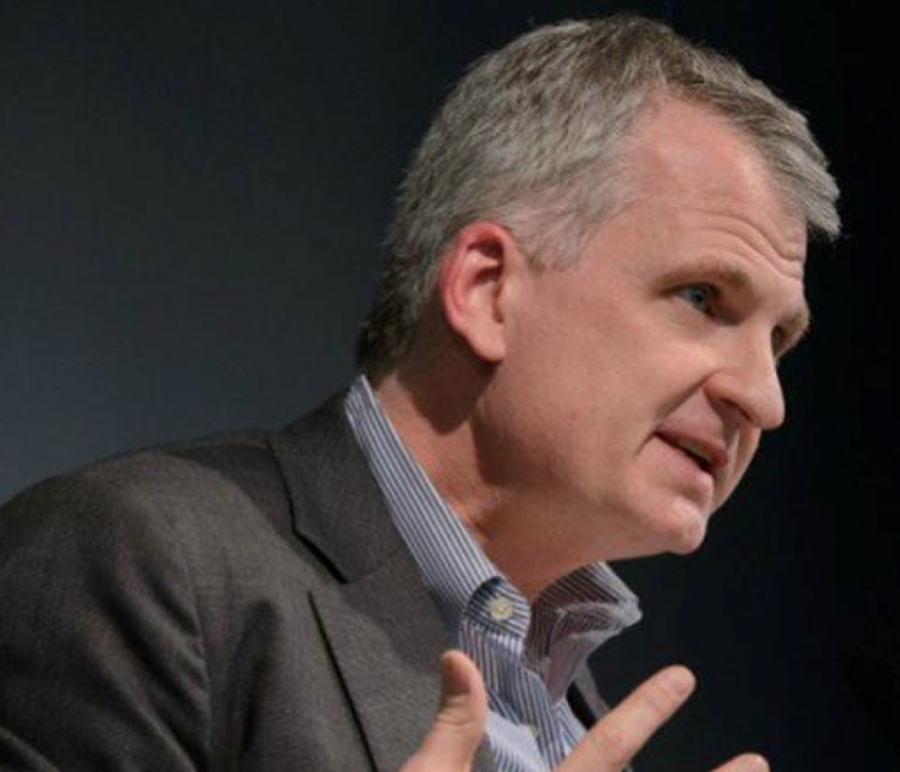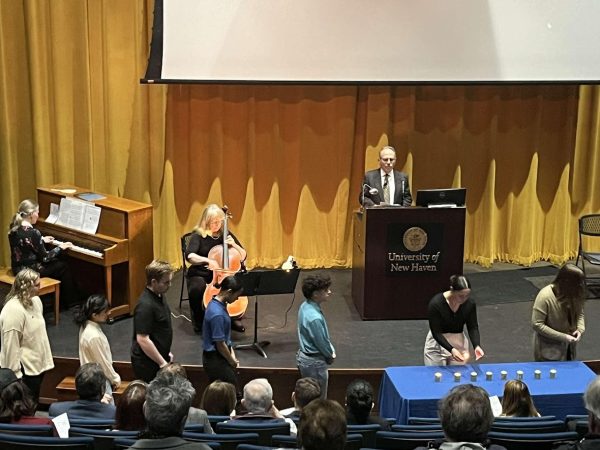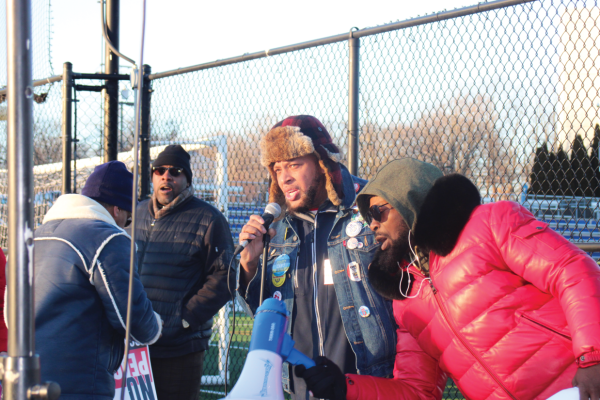A Student’s Look into Timothy Snyder
As the semester has gone on, I’ve found that politics have crept into every inch of my mind. More of my conversations have revolved around current events, casual talk has become more passionate – I’ve spent several nights talking with my roommates over voting rights, and my Twitter feed has devolved into a waterfall of politics, and Internet memes. Not sharing my opinion is something that’s fallen by the wayside. As turbulent as the last two years have been, something that has been repeated throughout all aspects of life is that Americans are more divided now than they have been since the Civil War.
It’s an easy point to agree with: Facebook is ground zero of a battle between millennials and their grandmothers, the President starts a feud with someone every week. Modern life has now, more than ever, become an episode of “The Simpsons.”
When I enrolled in Dr. Olena Lennon’s American Government and Politics class, I expected it to be similar to other classes I’d taken in the communications department – a liberal professor relating current events to the course’s content, surrounded by likeminded students. While I consider myself to be as far left as reasonably possible, I always welcome a contradictory point of view.
Lennon’s class had no shortage of conflicting points of view. Conversations in class cover a wide range of current and past events: the KKK is on a reunion tour, and playing your uncle’s favorite hits, while gathering guest racists from every corner of the country, several members of the President’s staff are being investigated by the FBI,and the biggest shooting in modern American history unfolded at a country music concert. I was more than surprised by what my fellow students had to say. Let’s just say, we often disagreed.
In a lot of ways, people don’t become humans until you interact with them; hence, the “bubbles.” I’m probably the seven hundredth person to talk about how people should step out and listen to what their neighbors are saying, instead of just staying in their little circles. It’s advice that’s become rote and has lost a bit of its meaning.
Occasionally, I’ll read Fox News after I’ve read an article from the New York Times – I’ve written a couple of posts refuting some nameless Twitter avatar’s point of view. Though, I can’t emphasize how different of an experience it is when these opinions are given a familiar face and voice. This has been the most valuable experience in this class so far.
By way of supplemental reading, Dr. Lennon assigned everyone to read On Tyranny: Twenty Lessons from the Twentieth Century by Timothy Snyder. While I had never heard the name before, I quickly got to learn that Snyder was one of the leading historians, and public intellectuals of our time, who specialized in European history. In his On Tyranny book, a Ta Nehesi Coates type of thinker presented twenty lessons modern society can learn from European history of the 20th century, particularly the rise of authoritarianism and fascism.
“History does not repeat, but it does instruct” – the book starts off, twisting a lesson that many of us have heard. I found this to be an interesting take. At the start of the semester, Dr. Lennon related the events that took place in her home country of Ukraine to Snyder’s first proposed lesson from the 20th century – “Do not obey in advance.”
In 2013, the president of Ukraine at the time turned down the EU-Ukraine Association Agreement, after having previously promised Ukrainian citizens that the deal would go through. This led to massive civil protests, and an eventual overthrow of the president– the events that prompted Russia to annex Crimea and invaded the eastern regions of Ukraine. The Ukrainians’ fight for independence resonates with another lesson from Snyder’s book – “Defend institutions.”
Indeed, as Snyder puts it, “institutions do not protect themselves” – we, the people, must actively protect our institutions by maintaining professional integrity in everything we do.
On Tyranny comes across as a citizen’s guide to civil disobedience, rather than a set of policy recommendations. “Make eye contact and small talk” is another lesson the short book shares, “It is also a way to stay in touch with your surroundings, break down social barriers and understand whom you should and should not trust.”
So far, my classmates’ reaction to Snyder’s book have been mixed. While many of the students embraced his lessons, others were quick to blow them off as biased and far-fetched.
It’s a unique experience living in times like these, and interacting with a group of students and professors hailing from backgrounds different than yours. It’s uncomfortable, but working to understand your peers’ conflicting perspectives will give you a better understanding of world history, and create a guide to navigating the social landscape. With Snyder visiting the university on Nov. 7, I anticipate analyzing these conversations on a larger scale.











Sasha • Nov 7, 2017 at 2:19 pm
They consider them to be “biased and far-fetched” because they are still trapped in the naive notion that Americans are somehow above he fascism Europeans endured, and because they know nothing about global 20th century history. This arrogance is likely to backfire. It’s quite sad, really.